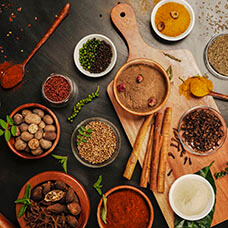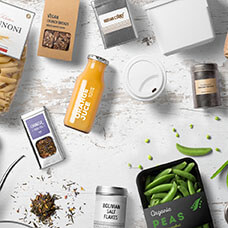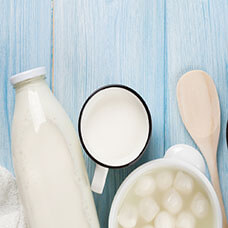
How to seasoning for babies with scientific standards
The weaning stage can be considered as a milestone marking the first "maturity" of a baby's life. At this time, the baby needs to consume more and richer foods, in addition to the main source of nutrition, which is breast milk. At the same time, at this stage, the mother can let the baby get used to spices, to develop the baby's taste. But how to season the baby to eat solid food that is good for the baby is a common issue that many mothers are concerned about. In the article below, UniMall will help readers understand more about this issue.
When should you start seasoning baby food?
According to research, when the baby is more than 4 months old, the mother can practice giving the baby solid foods, but mainly starchy foods. Because at this time, the baby's digestive system has secreted the enzyme amylase, capable of digesting a certain amount of starch. However, it is not until the child is more than 6 months old that the digestive system develops more fully to consume many other food groups such as meat, fish, eggs, milk, etc.
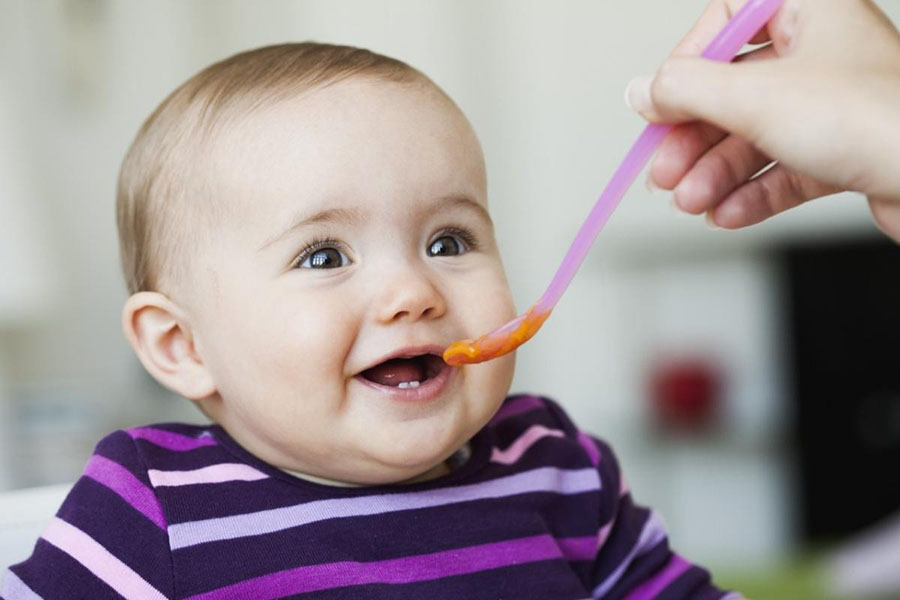
Mothers also do not worry about the baby's weight but give them solid foods too soon. When the baby shows signs such as: demanding more breastfeeding, being excited when parents feed, receiving and swallowing food instead of pushing food out with the tongue, etc., then the mother can rest assured that the child will exercise. Weaning because the baby is ready.
Seasoning for baby foods suitable for each stage
Under the age of 1 year
Baby food should not be seasoned with any seasoning. At this time, the baby just needs to feel the natural flavors from the food. Because in the food the baby consumes, there is already a certain amount of sugar and salt that is enough for the baby's development. On the contrary, if the mother adds sugar, salt, or seasoning powder at this stage, it will disrupt the baby's taste, hindering the absorption of essential nutrients for the baby, typically calcium. Therefore, it is more likely that the baby will have rickets or osteoporosis later in life.
From 1-3 years old
Babies can get used to salt and sugar with a sufficient amount. Mothers should note that children's taste buds are much more sensitive than adults with about 10,000 taste buds. Therefore, if the mother seasoned the food to its taste, the baby will find it very salty. When training babies to get used to spices, in addition to salt and sugar, mothers can use more natural spices, both to help them eat better, to stimulate the absorption of nutrients, and to be safe for their development. baby later.
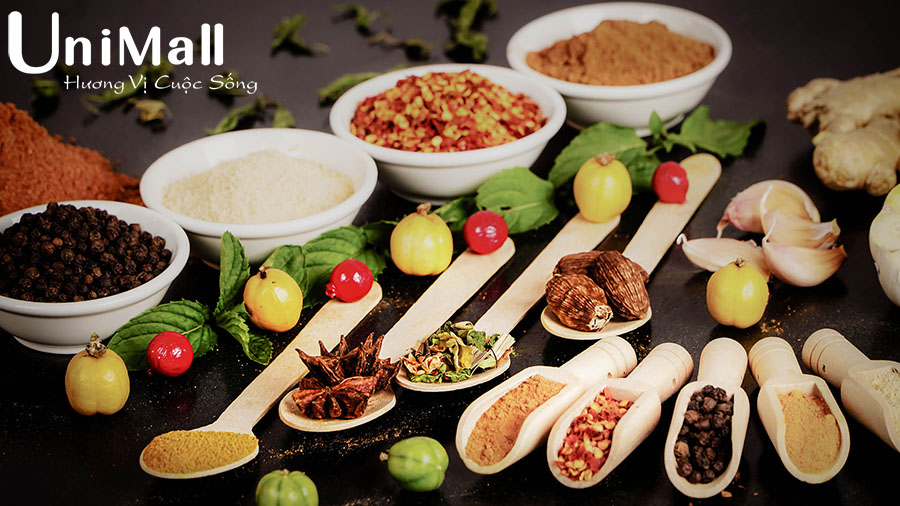
-
Black pepper contains many minerals and vitamins that are beneficial for the baby's digestion such as potassium, iron, calcium, zinc, vitamin A...
-
Garlic powder can be added to baby food, not only creating an attractive aroma but also being very safe for the baby.
-
Basil: Chopping basil to add to baby food has many benefits to help your baby digest better and increase appetite.
-
In addition, adding other herbal spices such as scallions, parsley, ginger, cinnamon powder, etc. when cooking porridge or making snacks for children is also recommended. At that time, the baby will discover more rich flavors and this is also the secret that many mothers apply to avoid anorexia in children later.
At the stage after 3 years old
Children can eat according to family taste. However, salt, sugar, seasoning, fish sauce should be seasoned just right. Instead, mothers should use more natural spices, both whole and healthy for the baby as well as the whole family.
Spices for baby food are indispensable and contribute to the comprehensive development of children. Let your child explore the richer flavors of herbs, so they can get more nutrients and form healthy eating habits.
See more: The group of spices to create the smell of all delicious dishes
